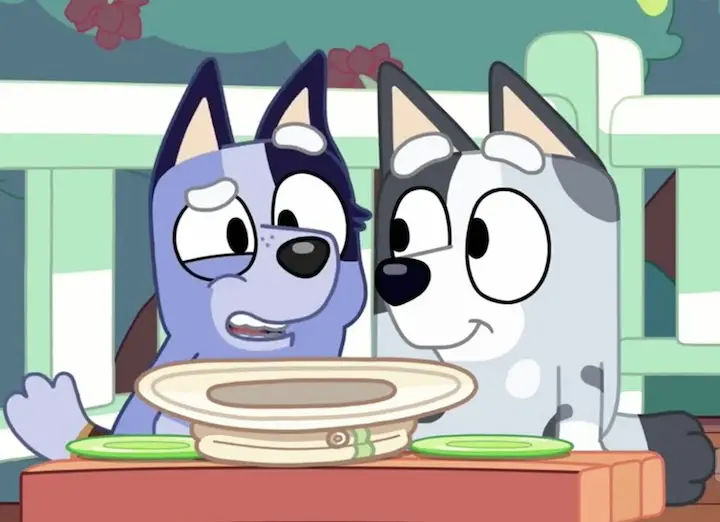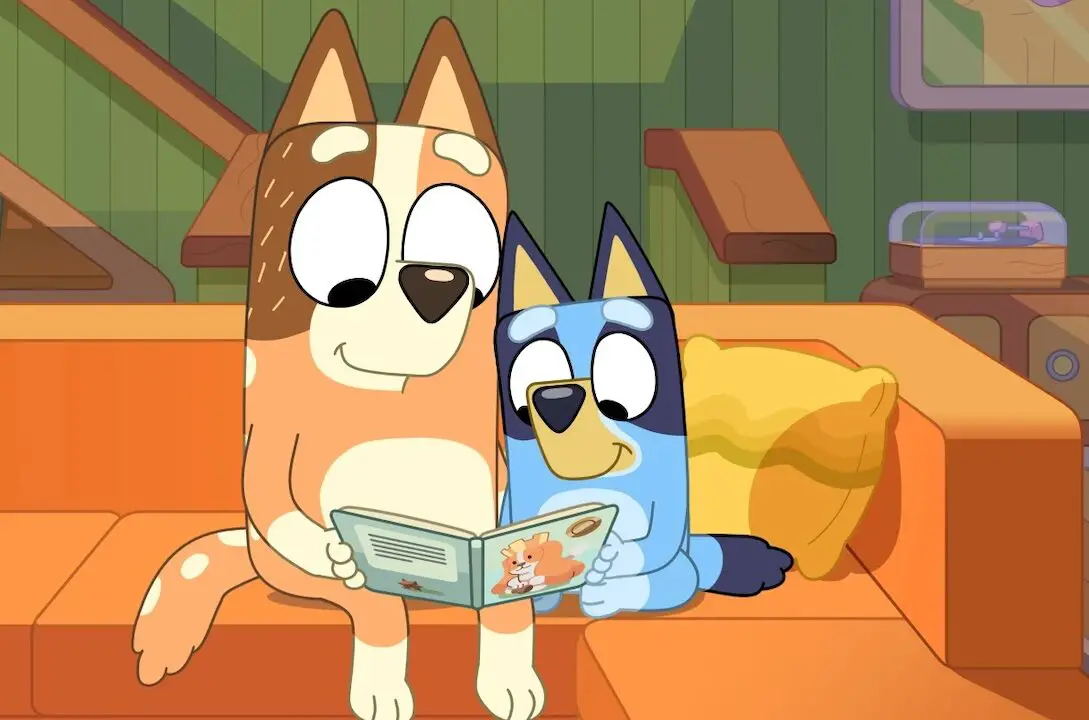The internet has been buzzing with discussions about whether Socks, the youngest cousin in the animated show Bluey, is autistic. This debate has sparked reactions across various platforms, with fans sharing contrasting views on the matter. The conversation revolves around Socks‘ unique behaviors and whether they are indicative of neurodivergence.
Let’s delve into why this debate is gaining traction, what people think, the reasons for conflicting answers, and the overall perspective of the viewers. There are two notable standpoints of discussion in the current viewer base.
The ‘Amber Nycole’ Perspective: Positive Representation or Assumption?
The Amber Nycole website presents a view asserting that Socks is neurodivergent, specifically pointing to clues from different episodes. The author draws connections between Socks‘ behaviors and common traits associated with neurodivergence, such as the portrayal of ADHD in another character, Jack. The article highlights instances where Socks displays what is interpreted as a vocal stim, a behavior often associated with neurodivergence.
The author concludes that Bluey‘s creators intentionally depict neurodivergent characters in a positive light but questions the ‘Socks is autistic’ theory. They raise concerns about the lack of direct evidence and the potential harm in assuming neurodivergence based solely on Socks‘ initial dog-like behavior.
Reddit’s Counterpoint: Lack of Evidence and Forced Interpretations
In a Reddit thread, a user expresses skepticism about the ‘Socks is autistic’ theory. They argue that the creators of Bluey have a track record of addressing specific issues head-on, as seen with Jack‘s portrayal of ADHD. The user contends that there is insufficient evidence supporting the theory and highlights the potential harm in forcing interpretations onto characters without clear indications.

Photo Source: BBC Studios
The Reddit thread acknowledges the importance of representation but emphasizes that it should be handled carefully and not through assumptions or forced narratives. The commenter draws parallels with experiences in other fandoms where debates over character attributes led to heated online arguments.
A Divide Among Fans: Autistic? Neurodivergent? Toddler Being a Toddler?
The discussion about whether Socks is autistic has divided the fanbase. Some viewers resonate with the Amber Nycole perspective, appreciating the idea of positive representation for neurodivergent individuals. On the other hand, the Reddit thread reflects a portion of the audience that prefers clear and intentional representation rather than assumptions.
The divide seems to stem from differing interpretations of Socks‘ behavior. Some see her initial dog-like actions as symbolic of infancy and the stages of growth in the Bluey universe. Others question whether such behaviors are indicative of autism or simply a creative choice for humor and storytelling.
Yes or No: The Contradiction in Perspective
The contradictory views on whether Socks is autistic boil down to the lack of explicit confirmation in the show. The evidence cited by those supporting the theory often revolves around behavioral traits and interpretations, leading to a subjective understanding of the character’s neurodivergence. The absence of a clear statement from the show’s creators contributes to the ongoing debate.
Socks‘ age at around one year old when introduced is a key factor in the discussion. Some argue that her behaviors are age-appropriate and linked to her developmental stage, while others interpret them as potential signs of neurodivergence. The contradiction lies in the dual nature of the evidence – one can see it as supportive of the theory or as part of typical toddler behavior, pointing to the way Socks walks and talks.
Viewers’ Perspectives: Seeking Relatability and Representation
The overall perspective from viewers varies. Some appreciate the exploration of neurodivergence in a children’s show, finding relatability and representation for themselves or their children. They see it as an opportunity for increased awareness and understanding.
Conversely, others argue that assuming neurodivergence without explicit confirmation risks oversimplifying and potentially misrepresenting real-world conditions. They emphasize the importance of accuracy and intentionality in portraying diverse experiences.
The Call for Neutrality: Acknowledging Interpretation
Amidst the debate, there is a call for neutrality in discussing whether Socks is autistic. It becomes essential to acknowledge that interpretations can differ, and the show’s creators may intentionally leave certain aspects open-ended. Taking a neutral standpoint involves recognizing the diversity of viewer perspectives and allowing room for various interpretations without definitive confirmation.
In the absence of a conclusive statement from the creators, viewers are encouraged to appreciate the positive representation Bluey offers while respecting the show’s intentional storytelling choices. The ongoing discussion serves as a reminder of the complexities surrounding representation and interpretation in the world of animated storytelling.
In conclusion, the debate surrounding whether Socks from Bluey is autistic reflects the broader discussions on representation, interpretation, and the nuances of character portrayal in children’s animation. The contrasting perspectives highlight the need for sensitivity and open dialogue within the fan community.
As viewers engage in these discussions, it’s essential to approach the topic with respect for diverse viewpoints and an understanding of the potential impact on individuals seeking relatability and representation in media.
Stay tuned and connected to StillABae for more content from the entertainment and social media world.
Last modified: February 7, 2024

